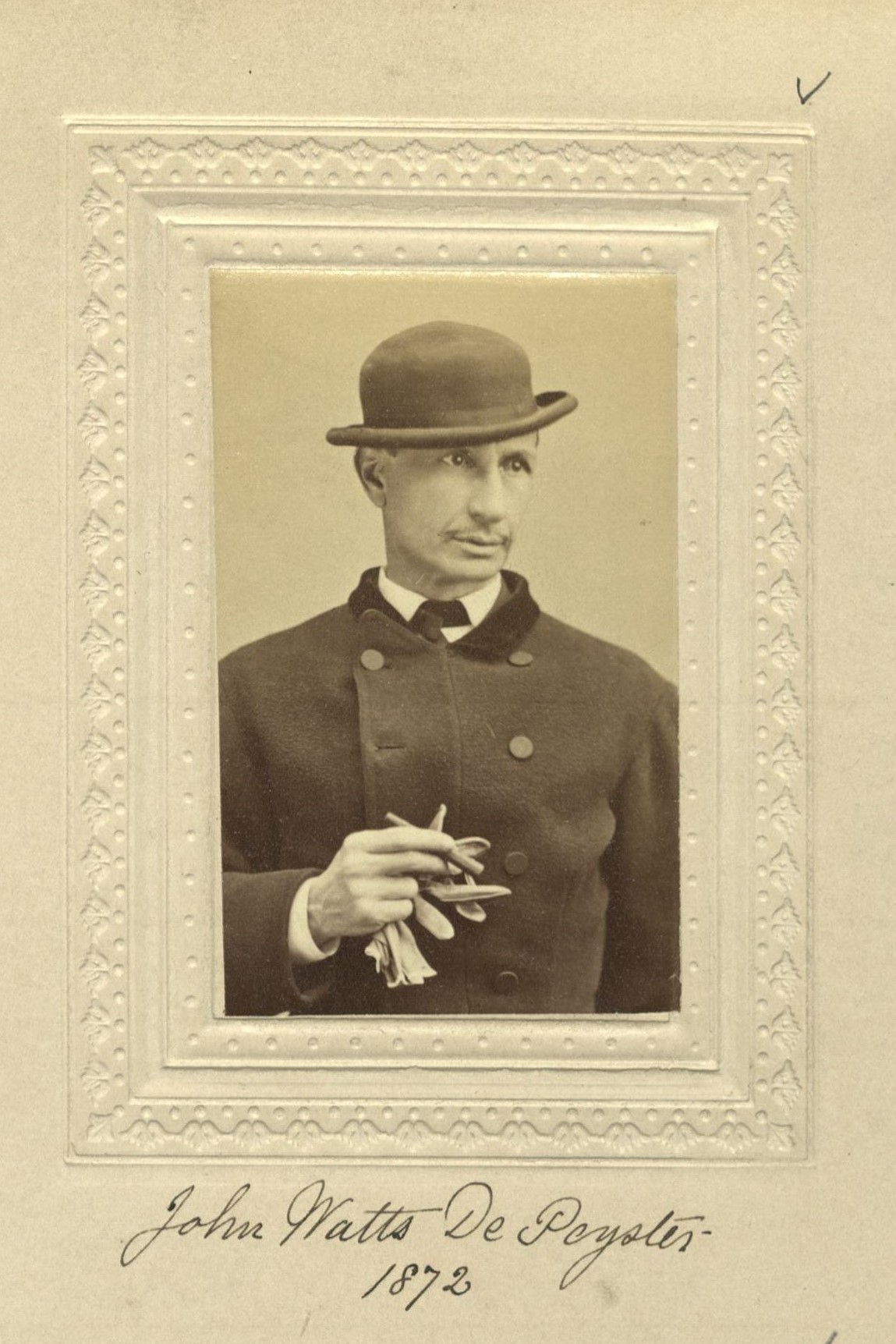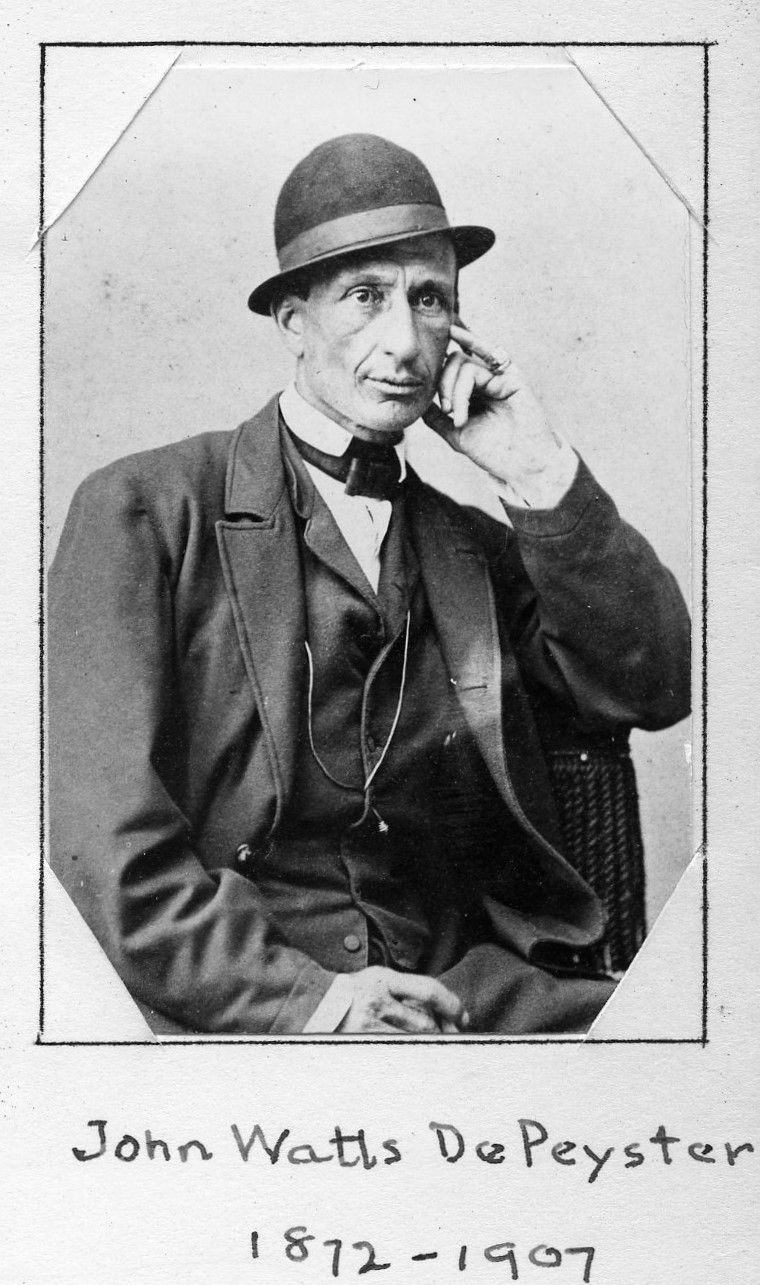Military Historian/Civic Affairs
Centurion, 1872–1907
Born 9 March 1821 in New York (Manhattan), New York
Died 4 May 1907 in New York (Manhattan), New York
Buried Trinity Churchyard , Manhattan, New York
, Manhattan, New York
Proposed by George W. Cullum and John W. Hamersley
Elected 5 October 1872 at age fifty-one
Archivist’s Note: Cousin of Frederick J. De Peyster
Century Memorial
John Watts de Peyster, for thirty-five years a member of this Association, was by ancestry and activity entitled to the position he attained as one of New York’s distinguished citizens. Throughout his long life of eighty-six years, to the very end, his task was the education of himself and his much loved community. He was an omnivorous reader and a voluminous writer of military history; was identified for two generations with the militia of the State, for the efficiency of which his investigations and suggestions were largely responsible; to the service of his country he gave two sons, to the service of his fellow-men he devoted himself and much of his fortune. There was scarcely a department of the public activities in which he was not an active agent for good; and his beneficence flowed in the full measure of a mind which was both creative and opulent. A man of absolute sincerity and elemental nature, his contact with the world was marked by picturesque incident and rich experience. His contributions in history, in local statecraft, and in the science of war are saturated with reality because he lived a life apart from shams and conventions, a life that craved and found experience, that tried and tested all things at first hand. Taking little on trust and less from hearing, he found the church, the school, the orphanage, the village community to be the best channels of usefulness for mankind and these all he enriched for the purposes to which they were devoted. Though frankly human and bearing the burdens of his qualities, his life on the whole was one of triumph over himself and for others.
William Milligan Sloane
1908 Century Association Yearbook


